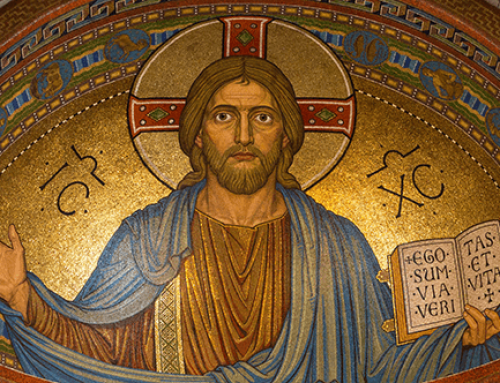 Thomas Chisholm (1866-1960) lived an ordinary life. Born in a log cabin in Kentucky, he became a teacher at age sixteen. Chisholm enjoyed writing poetry and at twenty-one, he became associate editor of his town newspaper in Franklin, Kentucky.
Thomas Chisholm (1866-1960) lived an ordinary life. Born in a log cabin in Kentucky, he became a teacher at age sixteen. Chisholm enjoyed writing poetry and at twenty-one, he became associate editor of his town newspaper in Franklin, Kentucky.
At twenty-seven, Chisholm received Christ as his Savior under the revival ministry of Dr. Henry Clay Morrison. He moved to Louisville to become the editor and business manager of Dr. Morrison’s Pentecostal Herald. At the age of thirty-six, Chisholm became a Methodist minister but was only able to continue in that position for a year due to poor health. In 1909, Thomas Chisholm took on a desk job, working as a life insurance agent until his retirement.
Many people can relate to the life of Thomas Chisholm. As far as we know, he had no exciting crisis events in his life. His day to day experiences were commonplace. He worked to support his family. He suffered from poor health.
Why, then, you may wonder, are you reading about Thomas Chisholm?
Several of Thomas Chisholm’s poems were set to music. Chances are, this is one you may know:
Great is Thy faithfulness, O God, my Father.
There is no shadow of turning with Thee.
Thou changest not, Thy compassions they fail not;
As Thou hast been, Thou forever will be.
Great is Thy faithfulness. Great is Thy faithfulness.
Morning by morning, new mercies I see.
All I have needed, Thy hand hath provided.
Great is Thy faithfulness, Lord, unto me.
Summer and winter and springtime and harvest,
Sun, moon and stars in their courses above
Join with all nature in manifold witness
To Thy great faithfulness, mercy and love.
Pardon for sin and a peace that endureth.
Thine own dear presence to cheer and to guide,
Strength for today, and bright hope for tomorrow,
Blessings all mine, with ten thousand beside. (Thomas Chisholm, 1923)
Thomas Chisholm understood that the faithfulness of God sustains us in the mundane days of life as surely as in the days of crisis. Whether in the face of debilitating illness, or in the face of sustained poor health that saps you of energy or keeps you from participating in activities you love, God’s faithfulness is able to uphold you.
Chisholm’s hymn was inspired by Scripture, a part of Scripture that, in my experience, few people have read: the book of Lamentations. A lament is an expression of sorrow; of mourning, or of grieving. The prophet Jeremiah wrote Lamentations to express the grieving of his heart after having witnessed the desolation of Jerusalem when Judah fell to the Babylonians in 586 BC. Because of the continued unfaithfulness of the Jewish people despite countless warnings, God had allowed both Israel and Judah to finally be conquered.
Surrounded by many heavy words of sorrow, Jeremiah’s expression of God’s faithfulness appears as a breath of fresh air:
Remember my affliction and my wandering, the wormwood and bitterness.
Surely my soul remembers and is bowed down within me.
This I recall to my mind, therefore I have hope.
The Lord’s lovingkindnesses indeed never cease,
For His compassions never fail.
They are new every morning;
Great is Your faithfulness. (Lam. 3:19-23)
God is trustworthy, reliable, constant. He never wavers from what is true and right and good. The faithfulness of God is a source of hope in despair and of light in darkness. Jeremiah had spent nearly forty years pleading with the people of Judah on God’s behalf, imploring them to repent, but to no avail. Surely, if anyone witnessing the fall of their nation would be downhearted, Jeremiah, doubly so. Yet remembering God’s faithfulness and compassion kindled hope in Jeremiah’s heart.
Years later, the Apostle Paul wrote to young Timothy,
It is a trustworthy statement:
For if we died with Him, we will also live with Him;
If we endure, we will also reign with Him;
If we deny Him, He also will deny us;
If we are faithless, He remains faithful, for He cannot deny Himself. (2Timothy 2:11-13)
God is faithful. He is worthy of your trust. If you put your trust in Him, you can be certain He will remain faithful. It is His nature – it is Who He is. And His nature does not change.
Pastor Cindy
From the Series: Nature of God





I always wondered about writings of God’s faithfulness because I thought we were the ones who were to be faithful. But, this writing makes it more clear to me. God’s faithfulness…how amazing our Lord is!
I love how seemingly ordinary people can such an impact on others for generations. I wonder if any of my writings will have that kind of impact 100 years from now?